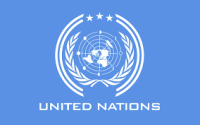
Intro: As an aspiring professional in the impact sector, you may be considering a career with influential organizations such as the United Nations (UN), European Union (EU), Organization for Security and Co-operation in Europe (OSCE), or the Organisation for Economic Co-operation and Development (OECD). To assist you in navigating this competitive landscape, we’ve put together a comprehensive guide that highlights key strategies and practical advice for submitting your first UN job application.
This guide will be divided into two parts:
- Scoping Opportunities
- Navigating Your First United Nations Job Application: Tips for Success
Part 1: Scoping Opportunities
The first part of our guide focuses on “scoping,” which refers to the actions you take when searching for potential employment opportunities. To successfully scope out job openings, you must understand career development paths, recognize potential challenges, and stay informed about macro trends that influence talent and skill demands.
At this stage, consider your competition and career aspirations. Making informed personal decisions will help you effectively scope opportunities and maintain a targeted focus.
Generalist vs Specialist: Defining Your Role
When considering UN careers, it’s important to note that program or thematic career paths may offer limited options for generalists. The UN primarily seeks thematic experts, such as those specializing in climate change mitigation or child protection. However, generalists may find opportunities in operations and administration, which involves finance, logistics, and HR management.
Assessing Your Risk Tolerance
If you’re interested in working for the UN in challenging countries, consider the risks you may face. While volunteer or junior specialist roles may be available, internships are typically not offered in non-family job locations. Pursuing opportunities in these complex environments may accelerate your professional development.
Monitoring Macro Trends and Funding Flows
Stay informed about macro trends and funding flows to anticipate new program proposals. For instance, the ongoing war in Ukraine may not attract substantial funding indefinitely. Once the conflict ends, rebuilding efforts will require diverse skills and expertise. Learning the Ukrainian language now may position you as a unique candidate and increase your opportunities in the next 10-15 years.
Understanding Quotas
As you explore potential roles, research the quotas organizations offer their full-time employees. This information can be useful when applying for a new position within the organization.
In this second part of our comprehensive guide, we delve into the process of creating and submitting your first job application for the United Nations (UN). Following these steps will increase your chances of standing out and securing your desired position.
Navigating Your First United Nations Job Application: Tips for Success
In this second part of our comprehensive guide, we delve into the process of creating and submitting your first job application for the United Nations (UN). Following these steps will increase your chances of standing out and securing your desired position.
Understanding Minimum Requirements
Before applying, carefully review the minimum requirements for the position. The UN receives numerous high-quality applications, so meeting these prerequisites is crucial. If you don’t meet all of the requirements, consider pursuing internship or volunteer opportunities. Focus on building the necessary skills and qualifications instead of applying for jobs that may not consider your application.
Evaluating Desired Requirements
If you meet the minimum requirements, assess the desired requirements for the position. Identify which ones you fulfill and take note of them. The more requirements you meet, the better your chances of securing the job. If you lack certain qualifications, consider working on them, as they will likely be relevant for future positions.
Preparing Your P11 Form in Advance
The UN uses the P11 application form across all its organizations. Though typically completed electronically, some internships may require alternative formats. Utilize the P11 form whenever you’re asked to submit a resume. Recruiters are familiar with this format, and using it will help you stand out.
Leveraging the T-Table and CARL Techniques
Two effective application writing strategies for UN positions are the T-Table and CARL techniques. The T-Table method helps you identify key points in the job description and craft your application accordingly. The CARL framework is an efficient structure for presenting your experience:
- C: Context – the situation or task at hand
- A: Activity – the action you took
- R: Results – the outcomes achieved by your actions
- L: Learning – lessons learned from the situation
For higher-level positions, the CARI method may be more suitable, with the “I” representing the impact achieved following a successful task.
Conclusion
By consistently seeking new opportunities, taking risks, understanding potential challenges (such as quotas), utilizing effective application strategies (T-Table and CARL), and keeping your documents updated (P11 form), you’ll be on the right path towards securing your first UN job. Stay focused and persistent in your pursuit, and your hard work will pay off.
